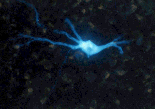| Sponsored by Wake Forest University School of Medicine and National Families in Action | |||
| Glossary - O | |||
| This glossary comes from False Messengers: How Addictive Drugs Change the Brain, by David Friedman, PhD, and Sue Rusche, Harwood Academic Publishers, Amsterdam, The Netherlands, 1999. A
| B | C
| D | E
| F | G
| H | I
|
|
|||
| O Open-label study A study in which both doctor and patient know that patients are receiving an experimental drug and what that drug is. Operant conditioning An unconscious form of learning in which a behavior is linked to a specific stimulus through a process of reinforcement. Opiate receptors Receptors that recognize both opiates and endogenous opioids. When activated, they slow down or inhibit the activity of neurons on which they reside.
|
Opioid Any chemical that has opiate-like effects; commonly used to refer to endogenous neurochemicals that activate opiate receptors. Organic solvents One class of inhalants that includes substances such as gasoline, paint thinner, and glue. Organic solvents are neurotoxic because they dissolve fatty substances, including the axon's myeline sheath. Outpatient treatment Nonresidential treatment for drug addiction. Patients live at home, often work, and come to a clinic for treatment. Overdose The condition that results when too much of a drug is taken, making a person sick or unconscious and sometimes resulting in death.
|
||
| Home | For Journalists | For the States | Science Update | Links | Glossary | About |
Last Revision
info@addictionstudies.org

